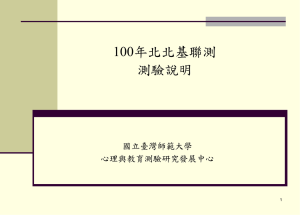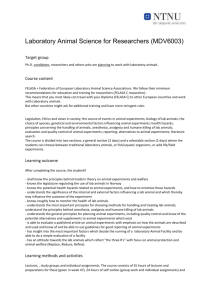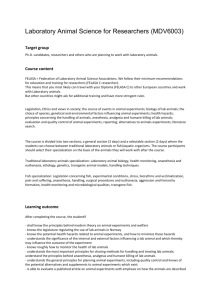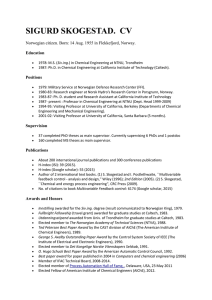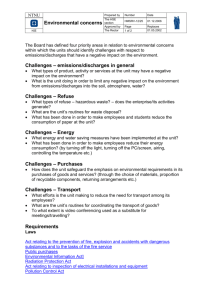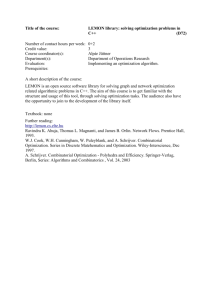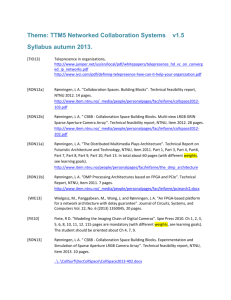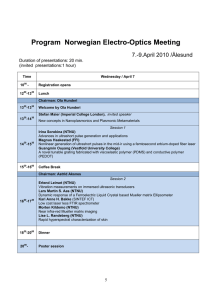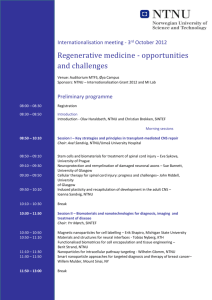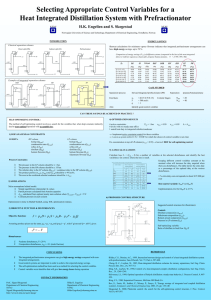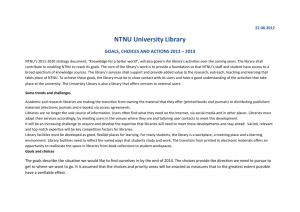SS1. Data-based Self-optimizing Controlled Variables for a
advertisement
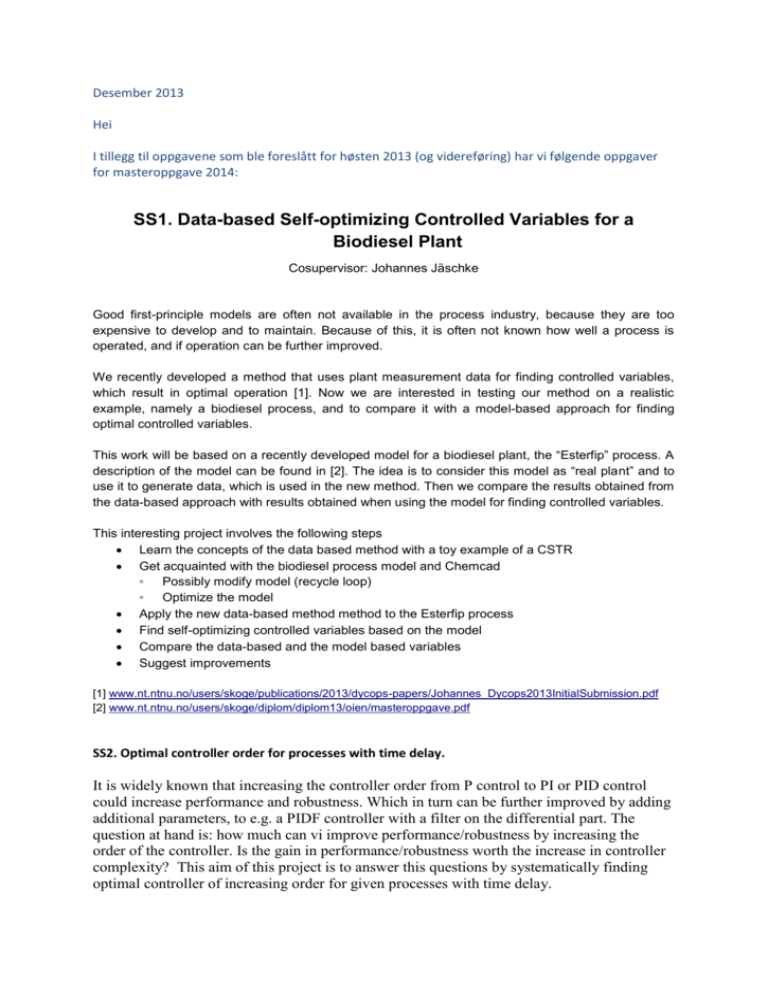
Desember 2013 Hei I tillegg til oppgavene som ble foreslått for høsten 2013 (og videreføring) har vi følgende oppgaver for masteroppgave 2014: SS1. Data-based Self-optimizing Controlled Variables for a Biodiesel Plant Cosupervisor: Johannes Jäschke Good first-principle models are often not available in the process industry, because they are too expensive to develop and to maintain. Because of this, it is often not known how well a process is operated, and if operation can be further improved. We recently developed a method that uses plant measurement data for finding controlled variables, which result in optimal operation [1]. Now we are interested in testing our method on a realistic example, namely a biodiesel process, and to compare it with a model-based approach for finding optimal controlled variables. This work will be based on a recently developed model for a biodiesel plant, the “Esterfip” process. A description of the model can be found in [2]. The idea is to consider this model as “real plant” and to use it to generate data, which is used in the new method. Then we compare the results obtained from the data-based approach with results obtained when using the model for finding controlled variables. This interesting project involves the following steps Learn the concepts of the data based method with a toy example of a CSTR Get acquainted with the biodiesel process model and Chemcad ◦ Possibly modify model (recycle loop) ◦ Optimize the model Apply the new data-based method method to the Esterfip process Find self-optimizing controlled variables based on the model Compare the data-based and the model based variables Suggest improvements [1] www.nt.ntnu.no/users/skoge/publications/2013/dycops-papers/Johannes_Dycops2013InitialSubmission.pdf [2] www.nt.ntnu.no/users/skoge/diplom/diplom13/oien/masteroppgave.pdf SS2. Optimal controller order for processes with time delay. It is widely known that increasing the controller order from P control to PI or PID control could increase performance and robustness. Which in turn can be further improved by adding additional parameters, to e.g. a PIDF controller with a filter on the differential part. The question at hand is: how much can vi improve performance/robustness by increasing the order of the controller. Is the gain in performance/robustness worth the increase in controller complexity? This aim of this project is to answer this questions by systematically finding optimal controller of increasing order for given processes with time delay. The work will be conducted in Matlab and Simulink. For optimization, we will use Matlabs fmincon (gradient) and fminsearch (gradient-free) routines. It is desired that the candidate knows about PID control and elementary optimization. Supervisor: Sigurd Skogestad Co-supervisor: Chriss Grimholt SS3. Thesis title: Optimization of the energy storage in buildings based on self-optimizing control Supervisors: Vinicius de Oliveira and Sigurd Skogestad We consider the optimal operation of energy storage in buildings with focus on the optimization of an electric water heating system. The optimization objective is to minimize the energy costs of heating the water, with the requirement that we should attend the uncertain demand at any time. The main complications in this problem are the time varying nature of the electricity price and the unpredictability of the future water demand. The water usage profiles will be randomly generated using typical data of domestic demand distributions available on the literature. We will consider real electricity price data obtained from the Nordic spot market. The goal of the student is to investigate the importance of choosing the right decision variables that will be used for optimization. The idea is that the size of the optimization problem can be considerably reduced by choosing decision variables that are slowly varying (ideally constant) with respect to time. This can be achieved by applying self-optimizing control ideas. This implies that we may introduce feedback controllers in the optimization model. Such a result would have a positive impact for many practical applications where computation resources are limited. This work is a follow-up of a previous master project where the goal of the student was to propose simple polices for near-optimal operation of the system. *********************************************************************** Sigurd Skogestad, Professor Phone: +47-73594154 Department of Chemical Engineering Home: +47-73902625 Norwegian Univ. of Science and Technology (NTNU) Mobile: +47-91371669 N-7491 Trondheim, Norway email: skoge@ntnu.no Office: Sem Saelands vei 6, K4-211 http://www.nt.ntnu.no/users/skoge *********************************************************************** From: Hege Johannessen [mailto:hege.johannessen@ntnu.no] Sent: 29. november 2013 10:28 To: alle-ikp-vit@chemeng.ntnu.no; MC-KristinSyverud; Wilhelm.Glomm@sintef.no Subject: PURRING: Innhenting av masteroppgaver til IKPs Studenter Hei, Nå er det på tide å sende inn forslag til oppgaver til IKPs studenter (MTKJ, MIKJ og MSCHEMENG). Oppgaveforslagene skal være på ca ½ A4-side (word dokument) og inneholde: Tittel på oppgave Beskrivelse av oppgaven Eventuelle krav til kvalifikasjoner/forutsetninger Navn på faglærer (veileder) med e-postadresse Navn på eventuelle medveiledere Om oppgaven er reservert skal det stå til hvem. Frist 1. desember! Hilsen, Hege Johannessen Studieveileder Institutt for Kjemisk Prosessteknologi (IKP) NTNU
